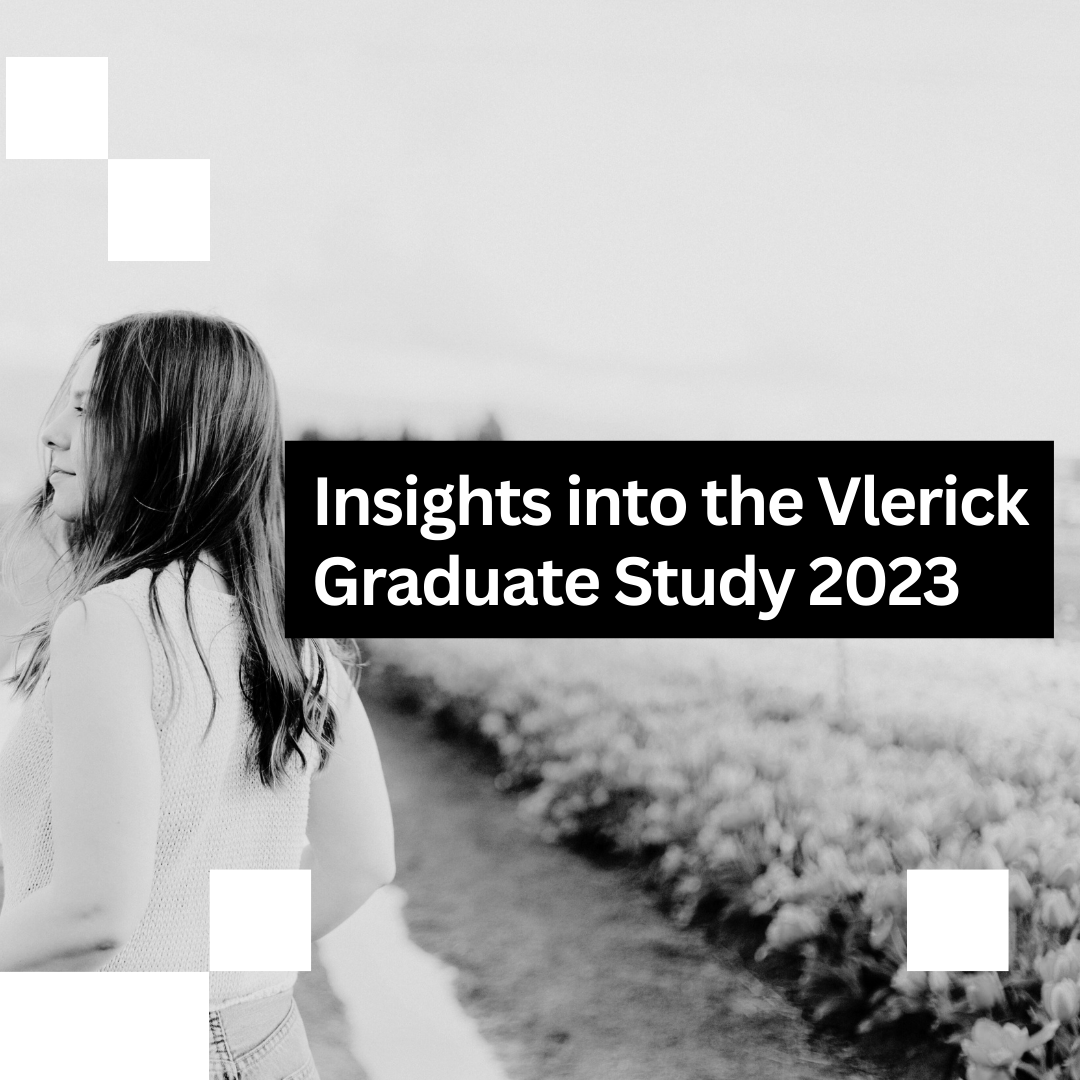Students graduating in a period of recession report lower levels of economic optimism and a higher preference for job security than students graduating in a period of economic growth. The good news is that Millennials remain optimistic about their own position in the Belgian labour market. These are the results of Vlerick Business School’s annual Graduates study, partner of Great Place To Work Belgium. The findings demonstrate the impact of contextual factors on the career expectations of graduates, looking for a job at their future employer.
Whilst the inflow of graduates in the European labour market is increasing every year, recent years have been characterised by economic uncertainty. The recession caused by the COVID-19 pandemic had a temporary, yet detrimental, effect on the labour market, and the question arises whether this led graduate students to lower their career expectations or whether the imprint of this generation is so strong that their expectations remain high. To examine the impact of economic uncertainty on the career expectations of graduates, we compared master students' responses to 4 different statements over the years.

Figure 1: Comparison of optimism and career expectations over the years (% of respondents that agree with the statement)
The graph shows that, since 2017, the percentage of students who are optimistic regarding the economic situation has decreased. However, in comparison to previous graduate cohorts, each new cohort reports higher levels of optimism concerning the jobs available given their skills and diploma. This means that master students remain optimistic about their own position in the labour market.
The results show that the percentage of students showing high levels of optimism regarding the career opportunities they expect to explore after leaving their first employer has increased in recent years. And whilst a desire for job security has decreased in comparison to 2014, we see that master students who graduated in 2020 and 2023 attach significantly more importance to job security compared to students who graduated in 2017. The pandemic can be regarded as a possible explanation as to why recent graduate cohorts attach greater value to job security.
These findings demonstrate the impact of contextual factors on the career expectations of graduates. Students graduating in a period of recession report lower levels of economic optimism and a higher preference for job security than students graduating in a period of economic growth.
Impact and purpose can play an important role in employer branding.
Despite the fact that Gen Zers hold pessimistic views on the efforts by organisations to protect and sustain the health of our planet, they are consciously looking to build a career that fits with who they are and what is valuable for them. About 60% of respondents indicate that they want an employer who offers them a job that is dedicated to a cause and has social and environmental impact. However, this does not occupy the minds of 40% of these higher educated people when choosing a first employer.


“Having an impact is closely related to the concept of purpose. In essence, purpose represents the ‘why’ of our actions and efforts. And, more importantly, it specifies our contribution to this world and to the society in which we live. On an organisational level, this is about why companies do what they do – i.e., their very reason for existence – which goes beyond profit. As shown in our data, both impact and purpose appear to be fairly important and can play an important role in employer branding efforts, recruiting and retaining this target group.”
- Prof. Dr Dirk Buyens, CEO of Great Place To Work Belgium


